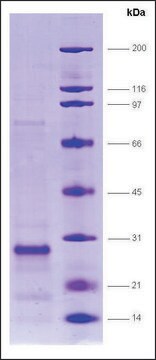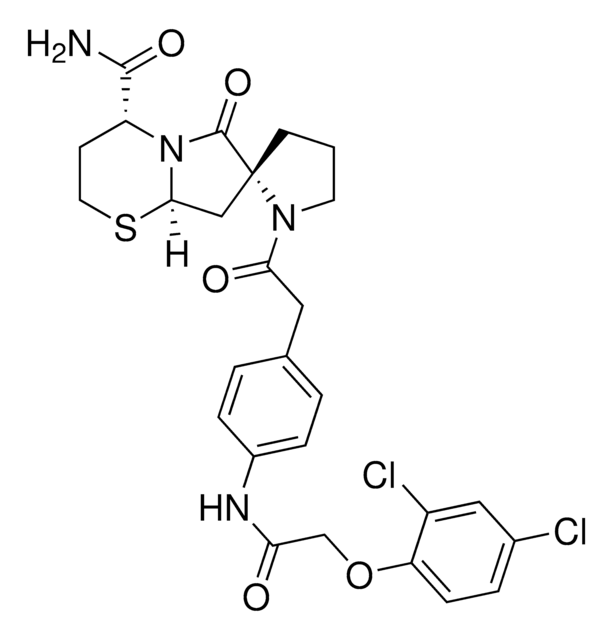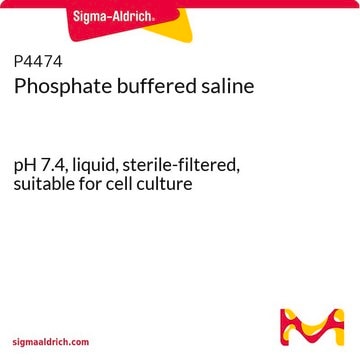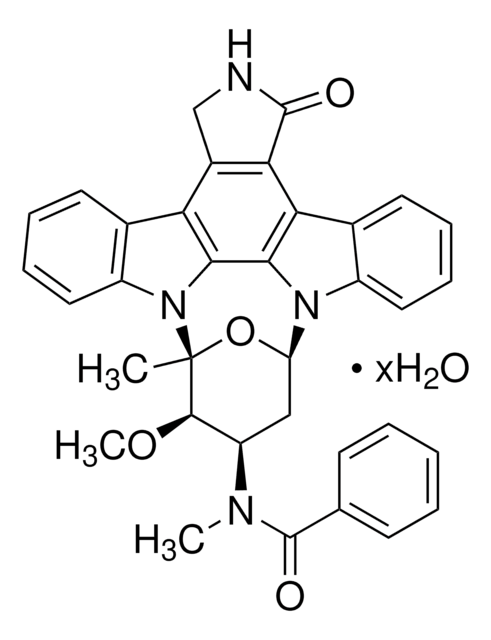추천 제품
생물학적 소스
human
재조합
expressed in E. coli
분석
≥80% (SDS-PAGE)
형태
frozen liquid
분자량
~57.8 kDa
포장
pkg of 10 μg
저장 조건
avoid repeated freeze/thaw cycles
농도
450 μg/mL
색상
clear colorless
NCBI 수납 번호
UniProt 수납 번호
배송 상태
dry ice
저장 온도
−70°C
유전자 정보
human ... PPARG(5468)
생화학적/생리학적 작용
There is evidence that a group of closely related nuclear receptors, called peroxisome proliferator-activated receptors (PPARs), may be involved in chronic diseases such as diabetes, obesity, artherosclerosis and cancer. The PPARs were first cloned as the nuclear receptors that mediate the effects of synthetic compounds called peroxisome proliferators on gene transcription. It soon became clear that eicosanoids and fatty acids can also regulate gene transcription through PPARs. They bind a specific element in the promoter region of target genes only as a heterodimer with the receptor for 9- cis retinoic acid, RXR (retinoid X receptor). Binding of the ligand of either receptor can activate the complex, but binding of both ligands simultaneously is more potent. Three PPAR isotypes have been identified: α, β (also called NUC1) and γ. PPARα is expressed most in brown adipose tissue and liver, then kidney, heart and skeletal muscle. PPARγ is mainly expressed in adipose tissue, and to a lesser extent in colon, the immune system and the retina. PPARβ is found in many tissues but the highest expression is in the gut, kidney and heart. PPARγ influences the storage of fatty acids in the adipose tissue. With the C/EBP transcription factors, PPARγ is part of the adipocyte differentiation program that induces the maturation of pre-adipocytes into fat cells. Most of the PPARγ target genes in adipose tissue are directly implicated in lipogenic pathways, including lipoprotein lipase (LPL), adipocyte fatty acid binding protein (A-FABP or AP2), acyl-CoA synthase and fatty acid transport protein (FATP). In addition, PPARγ is a direct target gene of the transcription factor sterol response element binding protein 1 (SREBP1) emphasizing the cooperative and additive functions between these two types of receptor.
물리적 형태
Clear and colorless frozen liquid solution
제조 메모
Use a manual defrost freezer and avoid repeated freeze-thaw cycles. While working, please keep sample on ice.
Storage Class Code
10 - Combustible liquids
WGK
WGK 1
Flash Point (°F)
Not applicable
Flash Point (°C)
Not applicable
시험 성적서(COA)
제품의 로트/배치 번호를 입력하여 시험 성적서(COA)을 검색하십시오. 로트 및 배치 번호는 제품 라벨에 있는 ‘로트’ 또는 ‘배치’라는 용어 뒤에서 찾을 수 있습니다.
E D Rosen et al.
Molecular cell, 4(4), 611-617 (1999-11-05)
The process of adipogenesis is known to involve the interplay of several transcription factors. Activation of one of these factors, the nuclear hormone receptor PPAR gamma, is known to promote fat cell differentiation in vitro. Whether PPAR gamma is required
Peroxisome proliferator-activated receptors: nuclear control of metabolism.
B Desvergne et al.
Endocrine reviews, 20(5), 649-688 (1999-10-26)
S Kersten et al.
Nature, 405(6785), 421-424 (2000-06-06)
In developed societies, chronic diseases such as diabetes, obesity, atherosclerosis and cancer are responsible for most deaths. These ailments have complex causes involving genetic, environmental and nutritional factors. There is evidence that a group of closely related nuclear receptors, called
자사의 과학자팀은 생명 과학, 재료 과학, 화학 합성, 크로마토그래피, 분석 및 기타 많은 영역을 포함한 모든 과학 분야에 경험이 있습니다..
고객지원팀으로 연락바랍니다.








